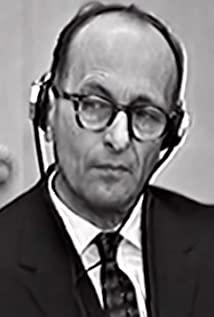In order to systematically read Hannah Arendt's works in the next time, I specially went to watch the biographical film of the same name. In fact, the film does not cover her life, but mainly selects the most important period of her life, that is, participating in the Eichmann trial and proposing the concept of "banality of evil". Her courage comes before us with her seemingly indifferent, arrogant character. I can't help but wonder, how many people in the world today can have such a powerful belief as her? After all, when a murder case or an event that touches the most basic emotions of a person happens, as long as someone thinks from a rational point of view, most of the cases can only arouse people's indignation, thinking that he is doing harm for him speak and criticize. So more and more people can only be silent. Comparing these two types of people: people who think rationally, in my opinion, are undoubtedly people who are still full of ideals about the world. They think that when they understand a person or a thing and explore the essence, they can have the opportunity to prevent disasters. It happens again; the latter group represents justice, but I believe they have a subconscious desire for social disappointment and destruction. With the mentality of destroying one less, they just shouted and killed, pouring out the anger in their hearts. "Understanding does not equal forgiveness." This is Hannah Arendt's defense. But many were not understood, and even many of her friends left her. Changing a person's mind is always a naive action. When emotions are touched, people are disgusted with thinking. In fact, it is questioning their own personality. When I am rational, have I lost my humanity? But in fact, the two are never in conflict. As Arendt said, the banality of evil is the result of unthinking. Thinking should be done all the time. Being kidnapped by simple emotions does not mean that you are a demon, but often this type of person can do the most vicious things. So, keep thinking, although the indifference brought by reason will make me and others question and misunderstand my own personality, but it can finally prevent the disaster from coming in the judgment of good and evil. From ancient times to today, from today to the future, we have paid too much price. And I still want to be naive and honest, I hope the next disaster can be avoided.
View more about Hannah Arendt reviews











